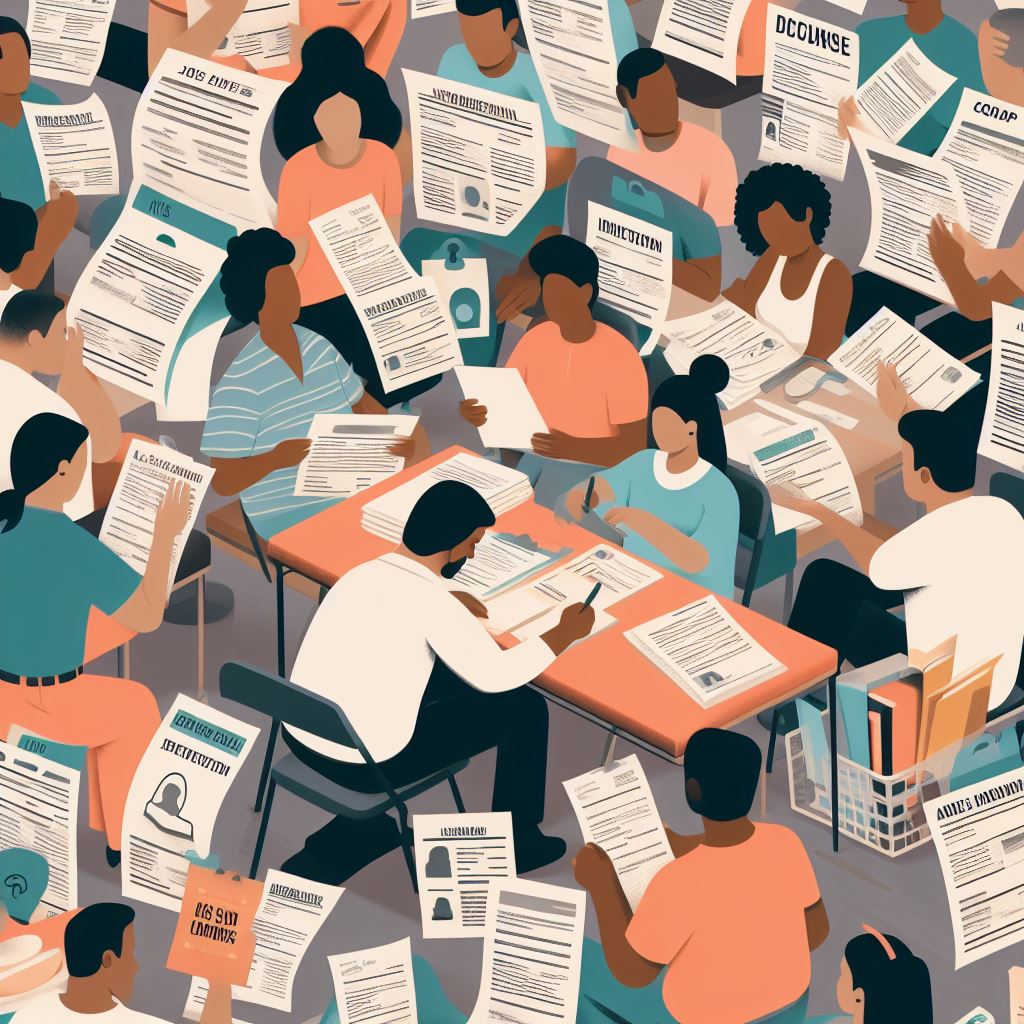Why Do Certain Documents Matter for Food Stamps Application?

Are you ready to take charge of your financial future and provide for your family?
When applying for food stamps, certain documents are crucial to your success. They can be the key that unlocks the door to a better life.
Proof of income, identification documents, residency verification, household composition, and asset and resource documentation are the building blocks of your application.
By gathering these documents, you are taking a giant leap towards securing the assistance you need.
Key Takeaways
- Proof of income, identification documents, residency verification, and asset and resource documentation are key documents required for a food stamps application.
- Pay stubs, bank statements, and proof of unemployment benefits are necessary to prove income.
- Driver’s license, state identification card, passport, and birth certificate are acceptable identification documents.
- Utility bills, lease agreement, mortgage statement, or a notarized letter can be used to verify residency.
Proof of Income
To apply for food stamps, you’ll need to provide proof of your income. This is an essential requirement to determine your eligibility for the program. When submitting your application, you must include documentation that verifies your income, such as pay stubs, bank statements, or proof of unemployment benefits.
These documents serve as evidence of your financial situation and help the authorities assess whether you meet the income criteria for receiving assistance. It’s crucial to include accurate and up-to-date information to avoid delays in the processing of your application. Remember to include any income from all sources, including employment, self-employment, and any other sources of income.
If you’re unsure about what documents are needed or how to obtain them, you can contact your local food stamp office for guidance. Providing proof of income is an important step in the application process, and ensuring you have the necessary documents will help expedite your request for food stamps.
Identification Documents
When applying for food stamps, you’ll need to provide identification documents as part of the application process. These documents are essential in verifying your identity and ensuring that you meet the eligibility criteria. The specific identification documents required may vary depending on your state, but commonly accepted forms of identification include a driver’s license, state identification card, passport, or birth certificate. It’s important to ensure that your identification documents are current and valid, as expired documents may not be accepted.
Providing the necessary identification documents helps establish your identity and confirms that you’re who you claim to be. This is crucial in preventing fraud and ensuring that resources are distributed to those who truly need them. Additionally, it helps the program administrators keep accurate records and maintain the integrity of the food stamps program.
Once you have submitted your identification documents, the next step in the application process is residency verification. This involves providing documents that prove your residency in the state where you’re applying. These documents may include utility bills, rental agreements, or government correspondence with your name and address. Residency verification is necessary to determine if you meet the state’s residency requirements for receiving food stamps.
Residency Verification
To verify your residency for the food stamps application, you’ll need to provide specific documents that demonstrate your current address. Residency verification is an essential part of the application process, as it ensures that the benefits are going to individuals who meet the eligibility criteria and are genuinely in need.
When it comes to proving your residency, there are several acceptable documents that you can provide. These include utility bills, such as gas, water, or electric bills, that have your name and current address listed. You can also submit a lease agreement or a mortgage statement that clearly shows your address.
If you don’t have any of these documents in your name, you can provide alternative forms of proof. For example, you can ask your landlord to complete a landlord verification form, which confirms your residency. Alternatively, you can provide a notarized letter from someone you live with, along with their proof of residency, stating that you live at their address.
It’s important to note that the documents you provide must be current and valid. Make sure they clearly show your name and address, and keep in mind that outdated or incomplete documents may result in delays or denial of your food stamps application.
Household Composition
To determine your eligibility for food stamps, it’s important to accurately report your household composition. Household composition refers to the people who live with you and share meals together on a regular basis. When applying for food stamps, you’ll need to provide information about each member of your household, including their full name, date of birth, and relationship to you. This information is crucial because it helps determine the size of your household, which in turn affects the amount of benefits you may be eligible to receive.
In order to verify your household composition, you may be required to provide documents such as birth certificates, marriage certificates, or court documents that establish legal custody or guardianship. These documents serve as proof of the relationships within your household and are necessary to ensure that only eligible individuals are included in your application.
It is important to note that certain household members may be excluded from your food stamps application, such as roommates or boarders who don’t purchase and prepare meals with you. However, if you’re unsure about whether someone should be included in your household composition, it’s always best to consult with your local food stamps office for guidance.
Accurately reporting your household composition is essential to ensure that you receive the correct amount of benefits and avoid potential penalties for providing false information. By providing the required documents and disclosing all relevant household members, you can ensure that your food stamps application is processed smoothly and accurately.
Asset and Resource Documentation
Gather the necessary documents to provide proof of your assets and resources for your food stamps application. The assets and resources you own, such as bank accounts, vehicles, and property, can affect your eligibility for food stamps. To help you understand what documents you need to gather, here is a table outlining the required asset and resource documentation:
| Asset/Resource | Documentation Required |
|---|---|
| Bank Accounts | Recent bank statements for all checking and savings accounts |
| Vehicles | Vehicle registration and proof of ownership |
| Property | Deed or property tax statement |
| Investments | Statements for stocks, bonds, and retirement accounts |
Having these documents ready will help the food stamps office assess your financial situation accurately. It is essential to provide truthful and complete information about your assets and resources to ensure the proper determination of your eligibility for food stamps. Remember, the purpose of gathering these documents is to ensure that the assistance provided goes to those who truly need it. By being proactive and organized in gathering the required asset and resource documentation, you can expedite the application process and receive the support you need.
Frequently Asked Questions
What Are the Eligibility Requirements for Food Stamps?
To qualify for food stamps, you must meet certain eligibility requirements. These requirements typically include income limits, citizenship or immigration status, and documentation proof such as identification, pay stubs, and utility bills.
How Do I Apply for Food Stamps?
To apply for food stamps, gather important documents like proof of income, identification, and residency. These documents matter because they help determine your eligibility and ensure the application process goes smoothly.
How Long Does the Food Stamps Application Process Usually Take?
The food stamps application process usually takes about 30 days. Certain documents are required to verify your eligibility, such as proof of income, identification, and residency. These documents are important for determining your eligibility for food stamps.
Can I Apply for Food Stamps if I Am Unemployed?
Yes, you can apply for food stamps if you are unemployed. Certain documents are required to prove your eligibility, such as proof of income, identification, and expenses. These documents are crucial for the application process.
Are There Any Restrictions on the Types of Foods That Can Be Purchased With Food Stamps?
You can only purchase eligible food items with food stamps. Certain items like cigarettes, alcohol, and hot prepared foods are restricted. Make sure to check the guidelines to know what you can buy.



